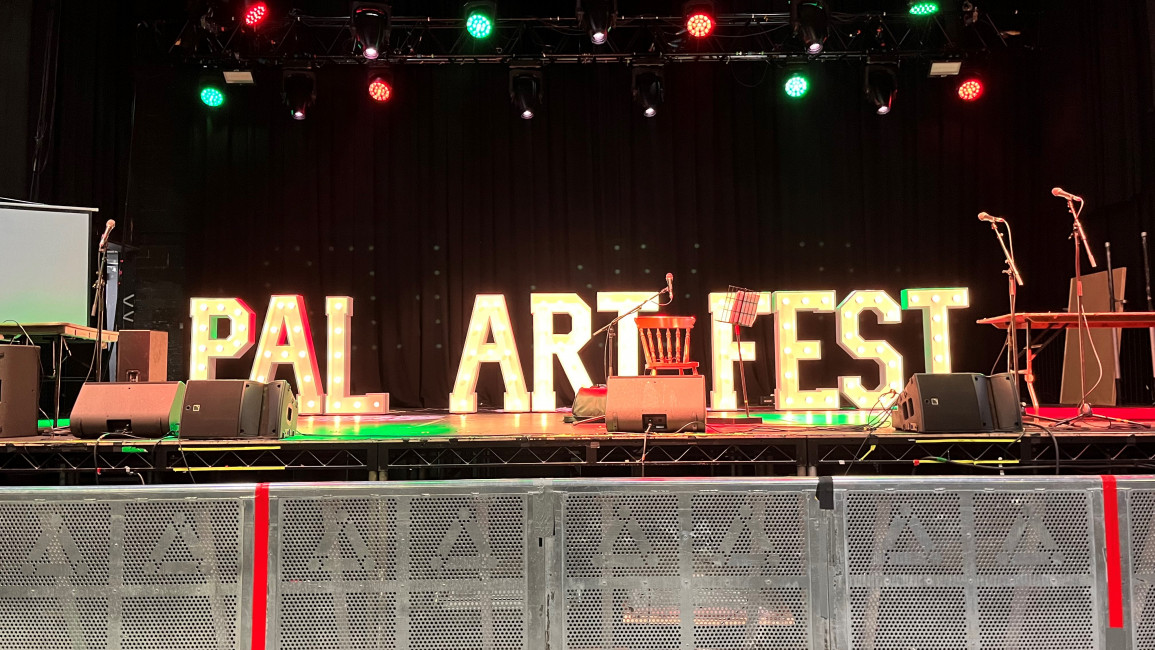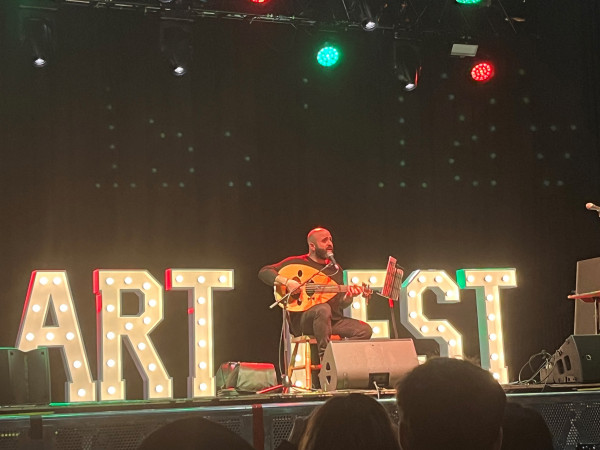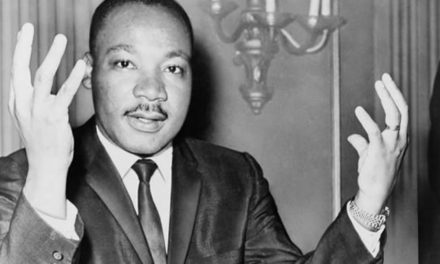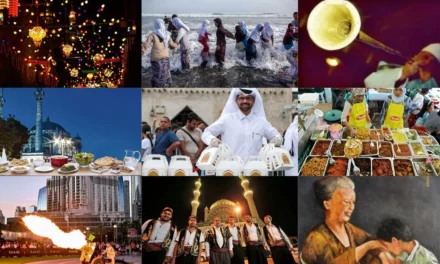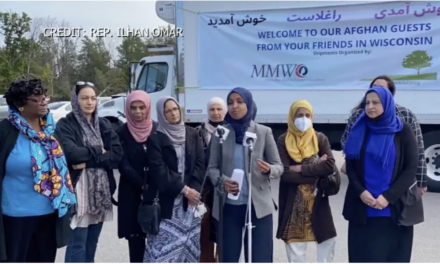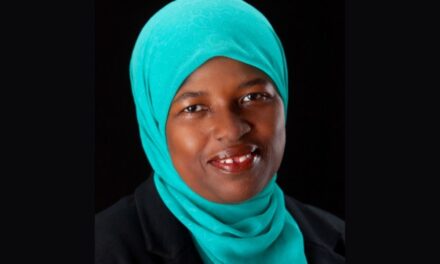Palestinian culture came to life in the UK city of Manchester on Wednesday evening, as artists and performers demonstrated what it means to be Palestinian today.
The event, entitled Pal Art Fest, was held at the popular Manchester Academy venue and organised by The University of Manchester’s Friends of Palestine society, an organisation that aims to “educating and spreading awareness on the rich culture, traditions, and history of Palestine”.
“There’s so much more to Palestine than to what’s going on right now. As important as the Palestine cause is, it’s important to also highlight the other aspects of our culture and history,” committee president and organiser Bushra told The New Arab.
Fellow organiser and committee publicity lead Dana Abuqamar said the inspiration behind the event was to “incorporate political, cultural and social aspects of their society” and merge them into one, while showcasing Palestinian customs.
The festival featured performances by Beesan Arafat, a Palestinian-Jordanian visual artist who seeks to use her art as a “soft resistance tool”.
Arafat, who is based in the UK, showcased Palestinian traditions such as wedding customs in 2D animation format, childhood games, as well as maps demonstrating Palestine before occupation, complete with the original Arabic names of a number of cities.
“Palestine to me is a celebration of continuity, I try to show life that we Palestinians want to get back to,” she explained.
Composer and oud player Saied Silbak played renditions of beloved songs from the Levant region, such as ‘Al Rozana’ – a song that tells the story of a ship bearing food for inhabitants of the region during an intense famine in the 20th century.
Silbak, who hails from the Palestinian city of Shefa-Amr in what is now northern Israel, also played and sang along to the classic ‘Ila Ommi’ (‘To My Mum’) by Lebanese veteran musician Marcel Khalife. Silbak says the song’s lyrics “have a big Palestinian statement”.
Palestinian oud player Saied Silbak performs at the Palestinian Art Festival, at The University of Manchester [TNA]
The musician’s natural charisma shone through as the crowd clapped and sang along to his renditions, and enjoyed his self-composed instrumental pieces. Silbak expressed that he wants to draw a wider international audience to his Palestinian music, while supporting the national cause.
The musician was then followed by spoken word artists Tasneim Zyada and Zain Alsoud, who performed poems such as ‘Swing’ and ‘Roots’. Zyada says she depicts mental health struggles which are amplified with “being Palestinian”, due to exposure to violence and trauma taking place in Palestine from an early age.
Despite the trauma, “Being Palestinian [keeps] pushing me forward,” she said when speaking of Palestinian resilience.
Alsoud, despite being of Syrian descent, said that her poetry resonates with the Palestinian cause as both groups have been subjected to “uprootedness and displacement”.
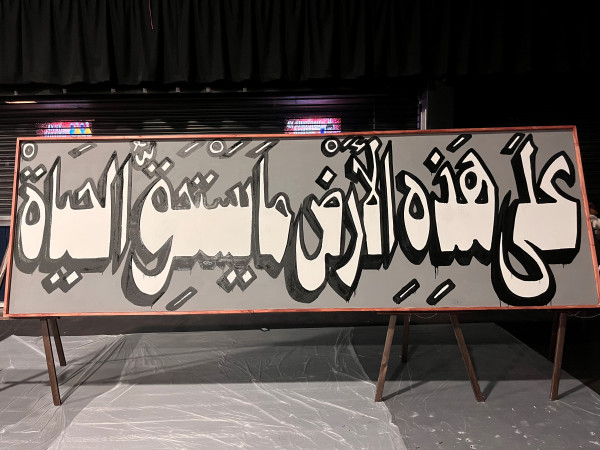
“What we have on this Earth makes life worth living”, a famous quote by Palestinian writer Mahmoud Darwish, often associated with Palestinian resistance [TNA]
Art, poetry and music aside, the event also offered a literal taste of Palestine with an assortment of snacks typical of the Palestinian palette; ranging from spinach and cheese fatayer, to mana’eesh topped with zaa’tar.
Fifty Palestinian paintings were also on display – and more importantly up for auction – with all proceeds going towards a number of charities associated with Palestine, namely Action for Humanity.
Attendees also got to enjoy a real-time graffiti sketch of the famous Mahmoud Darwish quote “What we have on this Earth makes life worth of living”, from the poem ‘On This Land’, which is heavily associated with Palestinian resistance.
“Palestinian culture is very rich, and what we should do by not just coming to these events and experiencing them and enjoying them in the moment, [is] to go and relay that on to other people, to children that [our culture is rich],” Abuqamar said to TNA following the festival.
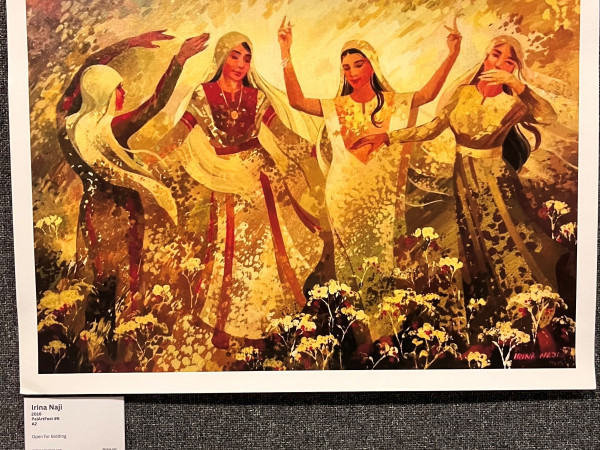
Several art pieces were up for auction, with proceedings going to charities associated with Palestine [TNA]
“[Our culture] cannot be stripped from us as indigenous people, it cannot be taken away,” she added.
The committee said that “they want to take Palestinian events as far as they can, with the goal to continue educating people on campus on what goes on in the occupied territories”.
The New Arab
